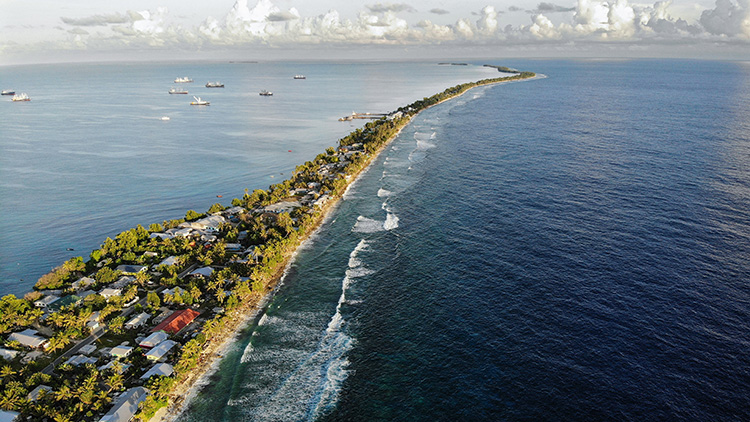Challenges:
-
Sea-Level Rise: Rising sea levels are a direct consequence of climate change, and small island nations, with their low-lying coastal areas, are at risk of coastal erosion, saltwater intrusion, and even complete submersion.
-
Increased Storm Intensity: Climate change contributes to more intense and frequent tropical storms, hurricanes, and cyclones. These events can result in devastating damage to infrastructure and loss of life.
-
Ocean Acidification: The oceans absorb excess carbon dioxide, leading to ocean acidification. This can harm coral reefs, which are critical to the livelihoods and ecosystems of many island nations.
-
Economic Vulnerability: Small island nations often rely heavily on tourism, agriculture, and fisheries, which can be negatively impacted by climate change. Extreme weather events can disrupt these industries and lead to economic instability.
-
Freshwater Scarcity: Rising temperatures can lead to increased evaporation, reduced freshwater availability, and contamination of freshwater resources due to saltwater intrusion.
Solutions:
-
Mitigation: Small island nations can contribute to global efforts to reduce greenhouse gas emissions through policies and initiatives that promote renewable energy, energy efficiency, and carbon sequestration.
-
Adaptation: Implementing adaptation strategies is crucial. These include building resilient infrastructure, protecting coastal areas, and developing climate-resilient agriculture and fisheries.
-
International Support: Small island nations need international support and financial assistance to adapt to and mitigate the impacts of climate change. The international community must fulfill commitments to provide climate finance to vulnerable countries.
-
Disaster Preparedness: Developing early warning systems, evacuation plans, and disaster response mechanisms can help protect communities from extreme weather events.
-
Conservation and Sustainable Practices: Protecting and restoring ecosystems, such as coral reefs and mangroves, can help buffer the impacts of climate change. Implementing sustainable practices in agriculture and fisheries can also enhance resilience.
-
Innovation: Encouraging innovation in areas such as climate-resilient crop varieties, water-saving technologies, and renewable energy solutions can benefit small island nations.
-
Education and Awareness: Raising awareness about climate change and its impacts is crucial. Educating communities and promoting sustainable practices can empower individuals and local governments to take action.
-
Partnerships: Collaboration with regional and international organizations, as well as neighboring countries, can help small island nations access expertise, resources, and support.
Small island nations face unique challenges due to their geographical location and limited resources. While the impacts of climate change on these communities are severe, the international community can play a crucial role in helping them adapt to and mitigate these effects. It's important to recognize that the challenges these nations face are not just their own but are global in nature, as climate change affects us all.




Comments (0)